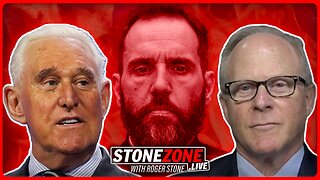Satanist Attempt to Smear Mother Afrika: SMOKE CREEN
whites across the U. S. reacted with exuberance after a recent tweet by President Donald Trump claiming he had asked the State Department to “closely study” farm expropriations and “the large scale killing of farmers” in South Africa.
by paraphrasing Fox News host Tucker Carlson, whose remarks on the subject apparently inspired the tweet, the President made it clear that he was referring to white South African farmers.
This disturbing tweet closely echoed a longstanding (and false) white supremacist claim that South Africa’s white farmers are government-sanctioned targets of large-scale, racially-motivated killings by South Africa’s black majority and that actual “white genocide” was occurring in South Africa.
Andrew Anglin, the operator of the notoriously racist and anti-Semitic website Daily Stormer, was one of the first to promote Trump’s statement. Lamenting that the “crisis” was not covered by the mainstream media, Anglin claimed on his site that the presidential tweet was a sign of change: “You see there is this gigantic man. His name is Donald Trump, and he is the President of the United States of America.”
Patrick Casey, leader of Identity Evropa, one of the most active alt right groups, excitedly tweeted that conservatives would now become aware “of the plight of White South Africans” and that it would move them from “acceptable” debate over immigration towards identitarianism (a white supremacist philosophy).
Popular alt right commentator Nicholas Fuentes tweeted that “White identity is entering the mainstream and there’s literally nothing you can do about it.”
Here are the facts: Some white farmers are actually killed each year in South Africa—as are many black farmers and many other South Africans, largely because South Africa is a country with generally high rates of violent crime. According to Africa Check, in 2016-17, 74 murders occurred during farm attacks—compared to 19,000 murders in the whole country. AgriSA, an association of agricultural unions in South Africa, has stated that the rate of farm murders is far lower in South Africa today than it was 20 years ago.
This is a far cry from the white supremacist claims of mass murder and ongoing “white genocide.” Those allegations are rooted in a long history: For decades, white supremacists globally were cheerleaders for the institutionalized white supremacy of apartheid in South Africa. They have reacted bitterly to the end of the racist policy, and to the progress South Africans have made in pursuit of racial equality and reconciliation.
White supremacists have seized upon some of the farm-related violence in South Africa since the end of apartheid to peddle a propaganda campaign that exaggerates and distorts the situation to imply that South African whites are imperiled. They also insist that unless action is taken, whites in Europe and the United States will face the same sort of “genocide” at the hands of non-whites and immigrants.
American white supremacists routinely make such comparisons. “We see the dangerous situation in Southern Africa,” suggested one writer for the white supremacist League of the South recently, “as one that could repeat itself in our own Southland in due time.” A writer for the white supremacist American Renaissance website suggested in March that “the fate of white people around the world is linked to that of the Afrikaners.”
White supremacists have been pushing this propaganda campaign particularly vigorously over the past six years or so. In February 2012, white supremacists organized protests at several state capitols as part of the “South Africa Project (SAP).” The goal of the organizers, which included representatives from virtually every segment of the white supremacist movement, was to promote the alleged “genocide of Whites” in South Africa.
Since then, white supremacist references to “genocide” in South Africa have been common. In July, someone writing under the name “Marcus Cicero” on the white supremacist website Occidental Dissent proclaimed that “the Boer slaughter” was coordinated and sanctioned “from the very highest levels of government.”
Alt right figurehead Richard Spencer focused on the plight of the “Boers” in South Africa in his March 2018 speech at Michigan State University, suggesting the United States might see something similar. Canadian alt right personality Lauren Southern even released a “documentary” this year titled “Farmlands,” that promoted the notion of “genocide against the white population ready to erupt in an all-out race war.”
More recently, Jason Kessler claimed that a South African speaker would be at the Unite the Right 2 rally in Washington, D.C. to talk about “human rights abuse” in that country. Kessler did not identify the speaker but was most likely referencing Simon Roche, the spokesperson for the Suidlanders, a far-right South African survivalist group which stresses the need to prepare for an impending racial civil war.
Typically warning that “white genocide” is imminent in South Africa, Roche shares his views at white supremacist events in the United States, including the April 2018 annual American Renaissance conference.
Also in April, more than a dozen Identity Evropa members held a protest in front of the South African embassy in Washington, D.C., hanging a sign on the statue of Nelson Mandela that read, “Kill the farmers. Kill the Boer,” suggesting black South Africans wanted to kill white South Africans.
The protesters then posed as casualties at the base of the statue.
Several hours later the group returned and placed 50 crosses adorned with South African flags on the lawn across the street from the embassy.
https://scholarship.law.uc.edu/cgi/viewcontent.cgi?article=1443&context=uclr
https://via.library.depaul.edu/cgi/viewcontent.cgi?article=1413&context=law-review
https://www.wbur.org/hereandnow/2018/06/25/rosewood-florida-massacre
Africa’s Internet Control Problem: A Picture of Internet Shutdowns in Africa
In Africa, internet shutdowns take on unique implications as they are used by governments to control speech, repress opposition, cover up human rights abuse and tamper with democratic processes. In the first of a two-part series, this commentary examines the phenomenon of internet shutdowns and considers the impact of the growing motif of internet shutdowns in Africa.
Internet shutdowns are a deliberate disruption to the internet, often by state actors, to achieve any range of purposes to which free access to the internet is deemed detrimental.
As the internet evolves, they have emerged mostly due to friction between governments and decentralised actors on the internet. They are quickly becoming commonplace across the world.
In Africa, internet shutdowns take on unique implications. Considering Africa’s continuing struggles with governance and her nascent democracies, internet shutdowns in Africa are used by governments to control speech, repress opposition, cover up human rights abuse and tamper with democratic processes.
This commentary examines the phenomenon of internet shutdowns, considers the impact of the growing motif of internet shutdowns in Africa and proposes an integrated approach, based on multistakeholder ideals, to combating the issue of Internet shutdowns.
What Are Internet Shutdowns
What constitutes an internet shutdown and how to identify one in practice can be deceptively complex and far more varied than prevailing definitions indicate. This is because internet shutdowns exist on a spectrum and are not a singular, homogenous activity. It is also because internet shutdown is often referred to by different terms by different parties.
Generally, internet shutdowns are defined as the intentional disruption of internet-based communications, making them inaccessible or unavailable for a specific population, location, or type of access.
They include complete whiteouts (where online connectivity is fully severed), mobile service disruptions, throttling, slowing down connections, and selectively blocking certain platforms.
They also include partial internet blackouts or blackouts within specific geographical locations.
Snapshot of Internet Shutdowns in Africa
Africa has become something of a hotspot for internet shutdowns. The continent’s nascent democracies, governance struggles and unique socio-economic context mean that the frictions caused by the increasing influence of the internet, especially on political issues, are heightened within the continent. In 2021, Africa was recorded as the most censorship-intensive region in the world, with 12 countries shutting down the internet, as the continent recorded a whopping 35 percent of all internet shutdowns in the year.
Internet shutdowns in Africa are primarily informed by states’ desire to control communication during elections, suppress political disturbances (whether real or perceived) or repress specific kinds of detrimental content. One of the very first internet shutdowns in Africa happened in 2007 when Guinea’s former president Lansana Conté ordered a shutdown following protests calling for his resignation.
Since then, perhaps compelled by the rise of social media and increasing internet penetration, an estimated 26 out of Africa’s 54 states have overseen internet shutdowns. In 2016, the Ugandan government ordered an internet shutdown during a general election remembered for violent protests and arrests of opposition candidates.
In 2020, Tanzania shut down the internet during the elections in October. In the same year, Ethiopia imposed an internet shutdown due to tensions between Abiy's government and Tigray's regional party. Other countries like Burundi, Chad, Zimbabwe, Benin, the Republic of the Congo, Niger, Uganda, Zambia, Gabon, Eritrea, Liberia, Malawi, Mauritania, Burkina Faso, Senegal, Eswatini, etc. have adopted varying degrees of internet restriction, within this period.
In 2021, Nigeria, Africa’s leading economy, recorded its first internet shutdown with the ban of Twitter which lasted over six months, following concerns around hate speech, misinformation and fake news, as well as civic disturbances stemming from regional agitation for self-governance and protests against police brutality.
Internet shutdowns in Africa are typically carried out by government orders to internet service providers (ISPs) requiring them to limit access by users whether to specific platforms (as was the case of the now notorious “Twitter Ban” in Nigeria) or the entire internet (as was the case in Uganda during the general elections in 2021).
They may also be implemented through fundamental infrastructure shutdowns (such as turning off of power grids and disablement of communications infrastructure), routing interferences, including Border Gateway Protocol route interferences and telephony routing interferences, domain name system (DNS) manipulation and deep packet inspection.
Why Internet Shutdowns?
The reasons given by various African states for internet shutdowns range from national security to public safety concerns. Often, the claim is that shutdowns are necessitated by a need to protect the public interest, prevent an undermining of constituted political structures or control hate speech, misinformation and illegal or harmful content.
Without more, these justifications are patently insufficient. While there is no denying that hate speech, disinformation, and similar negative externalities of internet activities present serious challenges for countries in Africa and around the world, internet shutdowns are condemnable for their human rights implications, authoritarian/undemocratic overtone, negative social impact, non-compliance with internet governance and digital policy standards, and ultimately, for their inefficacy in addressing any of the genuine problems.
There is evidence that the use of internet shutdowns to quell disturbances or national security issues only further accentuates them (as was the case in Egypt and Nigeria) as the propagation of illegal, harmful, or dangerous media hardly subside following shutdowns, with citizens often resorting to VPNs and other tools to evade internet blockages.
In any case, the supposed use of internet shutdowns to “preserve” democratic structures (assuming there is a genuine basis to consider that internet activities undermine democratic processes) is counterintuitive, as they are undemocratic by design and are restatements of the very issues they propose to resolve.
The truth is that these “justifications” often belie cogent ulterior motives. The real reasons for internet shutdowns often include the government's interest in (a) controlling the spread of information considered detrimental to their power, (b) effecting election malpractice and hiding voter fraud, (c) stifling dissent, (d) controlling media or (e) weakening minority groups.
Instructively, most internet shutdowns in Africa occur during or in anticipation of political events (such as elections) or political disturbances (such as protests or heavy criticism of the government) and are explored by governments to maintain control within the context of these events.
The costs of these decisions for Africa are extensive. Beyond the economic losses routinely incurred as a direct result of internet shutdowns, other repercussions include damage to commercial productivity, damage to the local digital economy, increased unemployment, loss of food security, disruption to social life and social structures and retardation of democratic participation and processes.
Regarding economic cost, African countries lost a combined $1.93 billion to internet shutdowns in 2021 alone, with Nigeria contributing the most to that total. The Cost of Internet Shutdown Report 2021 estimates the cost of the 2021 internet shutdown in Nigeria at US$1.5 billion (second only to Myanmar in the world).
-
 LIVE
LIVE
SNEAKO
1 hour agoWE'RE SO BACK
5,886 watching -
 LIVE
LIVE
Alex Zedra
38 minutes agoLIVE! use code Zedra for 30% off to enter to win M249 SAW | Drawing on 5/15
509 watching -
 LIVE
LIVE
Due Dissidence
6 hours agoDana Bash SMEARS Protesters, ORWELLIAN Speech Bill PASSES House, Columbia Fallout - w/ Prof. Zenkus
2,094 watching -
 LIVE
LIVE
Melonie Mac
2 hours agoGo Boom Live Ep 2: Lara Croft Wokeover and More!
824 watching -
 1:08:49
1:08:49
The Late Kick with Josh Pate
4 hours agoLate Kick Live Ep 509: Deion & Colorado | Transfer Portal Apology | Underrated Teams | CFP Issues
1.15K -
 LIVE
LIVE
The Anthony Rogers Show
10 hours agoEpisode 304 - Let's Solve Homelessness
56 watching -
 1:01:39
1:01:39
The StoneZONE with Roger Stone
6 hours agoIs Jack Smith's Appointment Even Legal? Trump Impeachment Lawyer David Schoen Enters The StoneZONE!
5.23K12 -
 1:07:02
1:07:02
Donald Trump Jr.
9 hours agoBiden Moves US Closer to a Military Draft, Ric Grenell Explains Why, Plus the Jack Smith Scandal You Haven’t Heard About | TRIGGERED Ep.133
63.2K114 -
 1:42:45
1:42:45
The Quartering
6 hours agoThe Bible Now Illegal In America, Another Boeing Whistleblower Disappears, Hero College Bros
35.4K49 -
 50:08
50:08
Kimberly Guilfoyle
8 hours agoSPIES, LIES, AND DEEP STATE CRIMES: CIA Spying Scandal, Plus the Swamp’s Gaza Refugee Disaster, Live with Rep Matt Gaetz and Russ Vought | Ep. 122
44.9K71